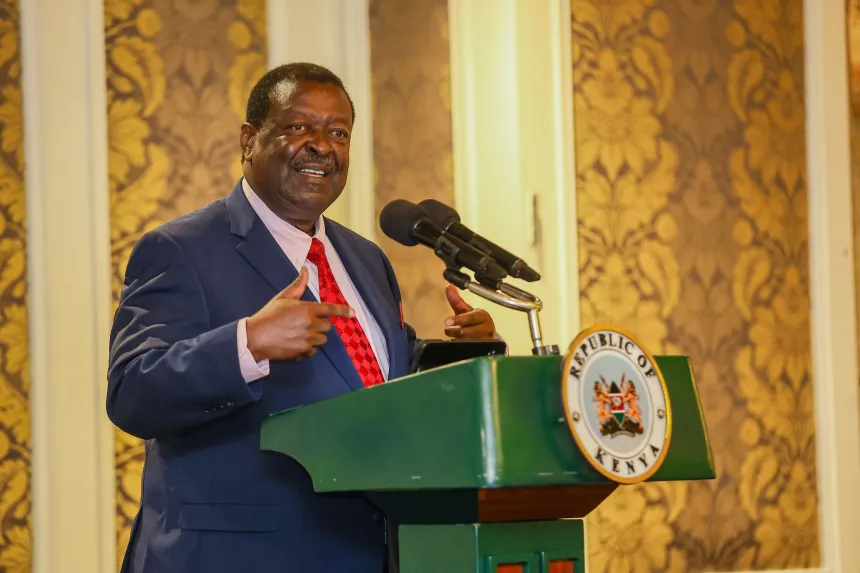The Government of Kenya is preparing to reopen talks with the International Monetary Fund (IMF) to explore new loan arrangements aimed at supporting economic stability and financing key development priorities.
Prime Cabinet Secretary Musalia Mudavadi, speaking on Thursday during the Quarterly Diplomatic Briefing held in Nairobi, confirmed that the National Treasury will soon engage the IMF on fresh financing options.
“The government of Kenya, through the Treasury, will be engaging with the IMF so that we can work on a new program,” said Mudavadi.
He noted that the discussions would focus on developing a structured program to help anchor Kenya’s medium-term economic plans and provide a clear fiscal pathway.
This renewed push comes as Kenya’s previous engagement with the IMF has remained dormant for close to a year. The four-year $3.6 billion (Ksh465 billion) program that began in 2021 expired in April 2025, with the country missing out on the final disbursement of approximately $850 million (Ksh109.9 billion). This shortfall was attributed to missed reform targets, including reducing the budget deficit and improving tax revenue collection.
The Treasury is now expected to dispatch an engagement team to initiate formal negotiations with IMF officials over the next two months.
“This decision signals our intent to continue working closely with global financial institutions to stabilize our fiscal position,” Mudavadi said.
Debt Pressures and Future Outlook
Kenya is currently facing significant external debt repayment obligations, and the government hopes the new IMF deal can offer some relief. Analysts, however, warn that the path to a new agreement may be bumpy.
Some financial experts suggest that the IMF may require partial settlement of existing arrears before it approves a new financing program, raising doubts over whether a new deal can be reached before 2027.
In the meantime, the government has been pursuing other funding strategies to ease pressure on public finances. These include the sale of diaspora bonds, privatization of select state assets, and refinancing both domestic and foreign bonds.
Government Seeks Removal from Global Financial Grey List
In a related development, Mudavadi revealed that Kenya is also intensifying efforts to be delisted from the Financial Action Task Force (FATF) grey list, a watchlist for jurisdictions with deficiencies in anti-money laundering and counter-terrorism financing frameworks.
“Equally, we continue to engage with our development partners and other relevant bodies so that we can eliminate Kenya’s listing on the grey list of the FATF,” he said.
The move is aimed at restoring international investor confidence in Kenya’s financial systems.
Earlier this year, the European Commission included Kenya in its updated list of high-risk third countries with strategic shortcomings in financial safeguards. Other African nations listed alongside Kenya include Algeria, Angola, Côte d’Ivoire, and Namibia.
Being on the FATF grey list means increased scrutiny and extra monitoring for financial transactions involving Kenya, which could pose additional barriers to foreign investment and cross-border trade.
With formal talks expected to begin in the coming weeks, the Treasury’s strategy now hinges on balancing domestic reforms, improving compliance standards, and regaining the trust of international financial institutions.







l96mho